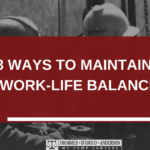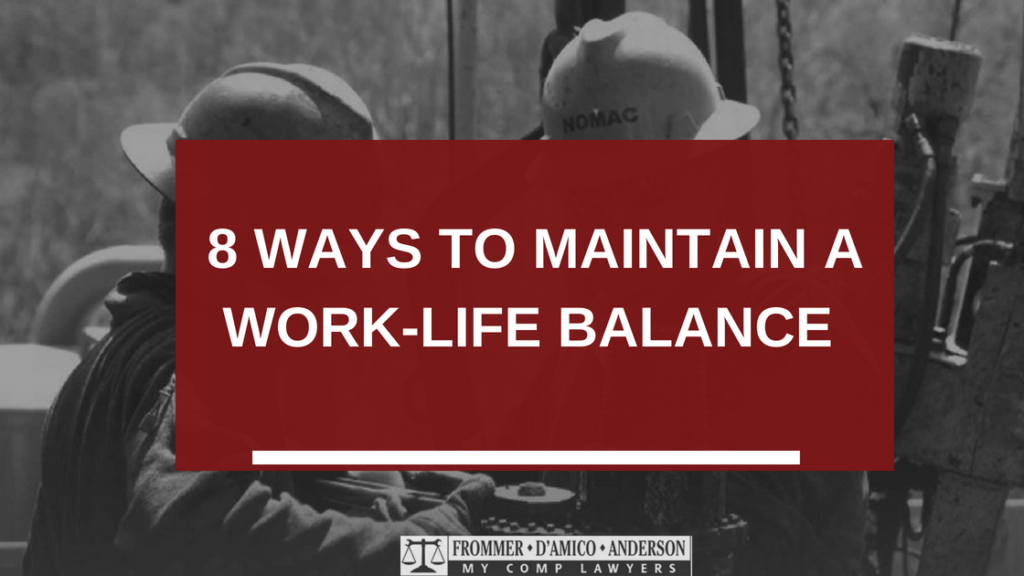Healthy work-life balance means you’re not overworking yourself, which is essential since overwork causes stress and even illness. A healthy work-life balance means you’re able to focus on hobbies, family, loved ones and personal development, as well as your career.
Unfortunately, in today’s hyper-competitive workspace, maintaining a healthy work-life balance is more difficult than ever before. Employers expect more from their employees, and many workers feel that if they’re not willing to work endlessly, they may be replaced by someone who is willing to abandon all semblance of balance in favor of a better paycheck.
Frommer D’Amico has compiled a list of eight ways to maintain a work-life balance so you can take a healthier approach to your work.
-
Plan Your Time Carefully
Use calendars or online apps to monitor your time and learn where it goes. Find pockets of time you can use for hobbies and more fulfilling activities. At work, evaluate where your time goes to see whether there is anything you can leverage out or if you’re doing too much busywork instead of getting tasks done.
-
Use a Kitchen Timer
If you want to improve your focus, give yourself a time deadline for every task and work project. Keep track of your time with a timer, and while the timer is running focus entirely on moving forward as much as possible on the task at hand, ignoring all distractions and other work. When the timer goes off, take a break before starting a new block of 15 or 20 minutes of intense focus.
-
Resist Multi-Tasking
It is challenging to focus on multiple things at once, and multitasking can make you feel more stressed.
-
Practice the Art of Saying “No”
Turn down work and personal obligations that don’t inspire you, contribute to your life or make you happy.
-
Look for Help
If you’re feeling overwhelmed at work, see if you can hire an assistant or leverage out some of your projects to someone else. At home, consider whether someone else can take care of errands and necessary tasks. If not, ask yourself if there are any tasks at work and home you can remove from your to-do lists.
-
Book Appointments With Yourself
Set aside time for yourself, blocking out your calendar just like you would for any severe appointments. Taking time off is as important as any work appointment.
-
If You Tend to Overwork, Take a Look at Underlying Causes
Do you feel that if you don’t work hard, you may be fired? Do you get an adrenaline rush from stress? Addressing some of the causes can help you break the bad habit of overworking.
-
Consider What You Really Want
Do you want to work as many hours as you are working? Are you trying to earn more money? If so, consider setting a specific financial goal, so you’re not just continually working more to make more. If you’re overworking to get ahead in your career, create a plan that lets you secure a promotion without wearing yourself down.
A healthy work-life balance can be thrown into chaos with a serious injury. If you have been injured at work, contact Frommer D’Amico for a free consultation with a certified workers’ compensation attorney.

